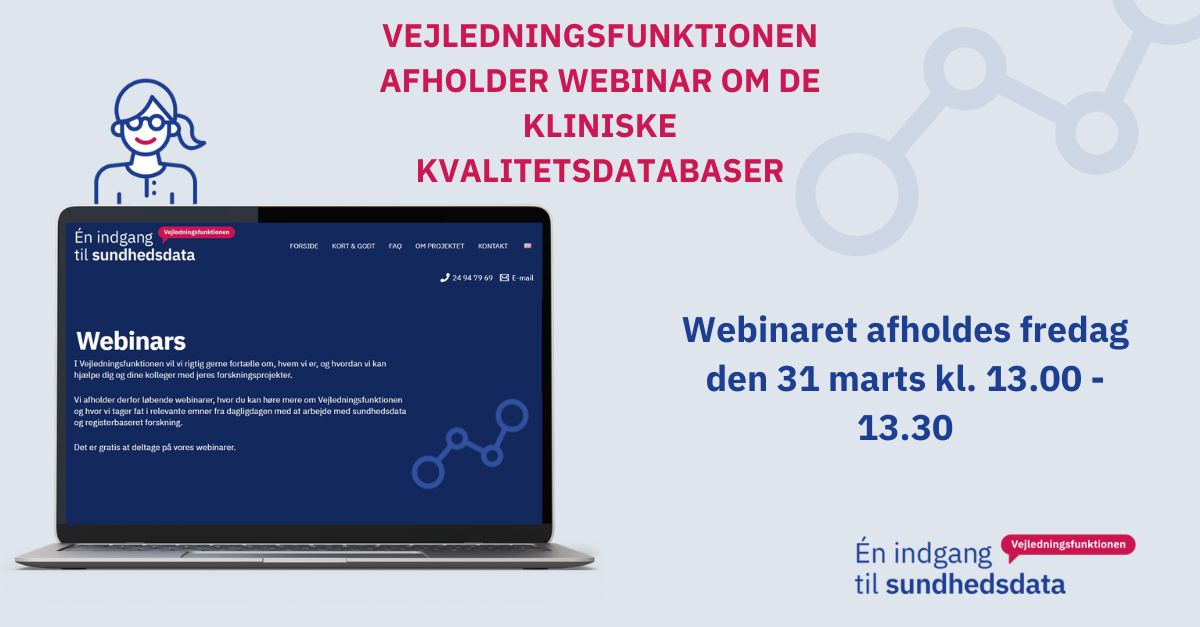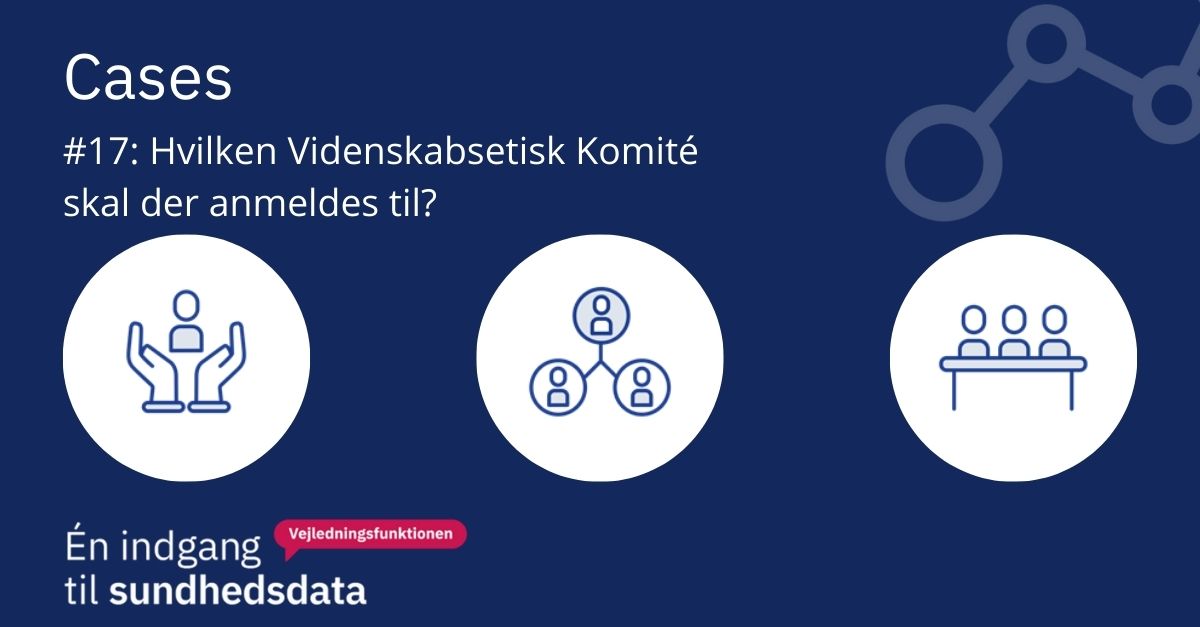
The Guidance Function is hosting an online session about clinical databases
The Guidance Function is hosting an online session about clinical databases During spring of 2023, the Guidance Function is hosting a series of Danish online sessions regarding the different requirements and processes, researchers might encounter when applying for different types of data.The sessions consist of a brief introduction to the Guidance Function, a presentation of the session topic and a Q&A session. On March 31 at 13.00 – 13.30, we will conduct the webinar about clinical quality databases (RKKP). The session will focus on the rules and regulations when applying for access to RKKP. The session is set to last 30 minutes and are directed towards researchers and other interested parties, who work with health data and have interest in first-level guidance about the requirements and processes regarding access to health data. Register for the Danish webinar about clinical quality databases here: Tilmelding til webinar om Kliniske kvalitetsdatabaser You can also see all the Danish upcoming webinars on the Guidance function’s website: Webinars | Vejledningsfunktionen Contact the Guidance Function on info@vejledningsfunktionen.dk or call us +45 2494 7969Monday to Thursday at 10-14Friday at 10-13 The Guidance Function offers first-level guidance on the requirements and permissions needed when applying for health data. Our services are free for both public and private clinicians and researchers, Danish as well as foreign.The Guidance Function is part of the public initiative The Research Health Data Gateway, and is a part of the new health data services initiated by the Ministry of the Interior and Health and Danish Regions. Looking forward to seeing you. News from the Guidance FunctionWe welcome your suggestions for content for the Guidance Function newsletter. Please submit any suggestions to info@vejledningsfunktionen.dk. Opening hoursMonday – Thursday between 10:00 – 14:00Friday between 10:00 – 13:00Tel.: (+45) 2494 7969




